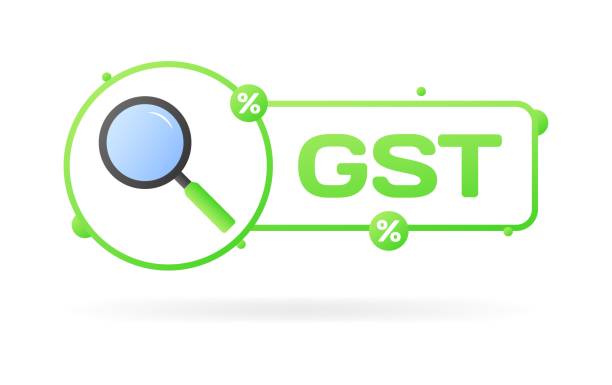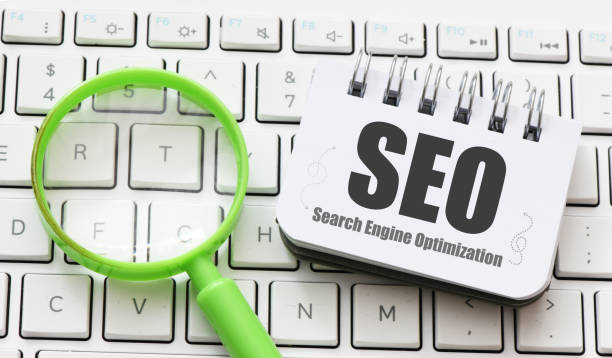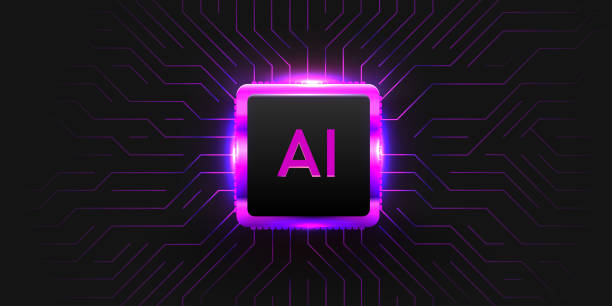What is Technical SEO and why is it vital for your website?

What is Technical SEO and why is it vital for your website?
Technical SEO refers to a set of actions performed to improve a website’s ranking in #search_engine results.
These actions include optimizing website structure, page loading speed, crawlability, and indexability by Google bots and other search engines.
Search engine optimization
The importance of #Technical_SEO stems from the fact that search engines more easily identify and index websites that are technically optimized.
A website with a proper structure and high loading speed provides a better user experience for visitors, which leads to increased user retention time on the site, reduced bounce rate, and ultimately, improved SEO ranking.
In summary, technical SEO is the foundation of successful SEO, and without it, other efforts in content SEO and Off-Page SEO will not achieve the desired results.
In 2024, with the increasing complexity of search engine algorithms, attention to technical SEO has become more important than ever.
Google’s algorithms are constantly being updated and new factors are being considered for ranking websites.
Therefore, websites that do not pay attention to technical SEO will fall behind in competition with other websites.
Did you know that 85% of customers check your company’s website before any interaction?
Build a corporate website worthy of your reputation with Rasawweb.
✅ Increase credibility and customer trust
✅ Attract high-quality leads
⚡ Get free website design consultation
Most Important Technical SEO Factors in 2024

Most Important Technical SEO Factors in 2024
Several factors influence technical SEO, but some are more important.
Here are some of the most important factors:
- Page Loading Speed: Page loading speed is one of Google’s most important ranking factors.
Users expect web pages to load in less than 3 seconds.
If your page loading speed is slow, users will leave the site, and this will negatively affect your SEO ranking. - Mobile Optimization: Given that most users access the internet via mobile, optimizing your website for mobile is essential.
Your website should display correctly on different devices with varying screen sizes.
Mobile-first indexing - Website Security (HTTPS): Using the HTTPS protocol is essential for website security.
HTTPS protects user information from hackers and builds user trust. - Website Structure: Your website’s structure should be logical and organized.
Users and search engine bots should be able to easily navigate your website. - Using a Sitemap: A sitemap is a list of all your website’s pages that helps search engines find and index all your pages.
- Robots.txt File: The Robots.txt file tells search engines which pages of your website should not be indexed.
- Image Optimization: High-volume images can slow down page loading speed.
Therefore, you should optimize images to reduce their size.
How to Improve Your Website’s Loading Speed?

How to Improve Your Website’s Loading Speed?
Website loading speed directly impacts user experience and SEO ranking.
There are various methods to improve website loading speed.
Here are some of these methods:
- Image Optimization: Use image compression formats like WebP and reduce image sizes.
- Enable Gzip Compression: Gzip compression reduces the size of website files and increases loading speed.
- Use a CDN: A CDN (Content Delivery Network) is a network of servers worldwide that places your website’s content closer to users, increasing loading speed.
- Code Optimization: Optimize your website’s HTML, CSS, and JavaScript code.
Remove unnecessary and redundant code. - Use Caching: Use browser and server caching to store website content in memory and prevent it from being reloaded.
- Choose a Suitable Hosting: Choosing high-quality, high-speed hosting significantly impacts your website’s loading speed.
Here is a table of website speed testing tools:
| Tool Name | Description |
|---|---|
| Google PageSpeed Insights | Provides a comprehensive site speed report and optimization suggestions. |
| GTmetrix | Comprehensive site speed analysis and detailed reporting. |
| WebPageTest | Tests speed from various geographical locations. |
Optimizing Your Website for Mobile: A Practical Guide

Optimizing Your Website for Mobile: A Practical Guide
Given the increasing use of mobile devices, optimizing your website for mobile is crucial.
A mobile-optimized website provides a better user experience for users and improves SEO ranking.
- Responsive Design: Use responsive design so that your website displays correctly on various devices with different screen sizes.
- Use Legible Fonts: Use fonts that are easily readable on small screens.
- Image Optimization: High-volume images can reduce page loading speed on mobile.
Therefore, optimize images to reduce their size. - Use Large Buttons: Use large buttons so mobile users can easily click on them.
- Avoid Pop-ups: Avoid displaying pop-ups on mobile, as pop-ups can disrupt the user experience.
Did you know that your company’s website is the first point of contact for 75% of potential customers?
Your website is the face of your brand. With **Rasawweb**’s corporate website design services, build an online presence that earns customer trust.
✅ Create a professional and lasting image for your brand
✅ Attract target customers and increase online credibility
⚡ Get a free website design consultation from **Rasawweb** experts!
The Importance of Website Security and Using HTTPS

The Importance of Website Security and Using HTTPS
Website security is one of Google’s most important ranking factors.
Google prioritizes websites that use the HTTPS protocol.
HTTPS protects user information from hackers and builds user trust.
- Install an SSL Certificate: To use HTTPS, you must install an SSL certificate on your website.
An SSL certificate encrypts information between the user’s browser and the website’s server. - Update Software: Regularly update your website’s software to prevent security vulnerabilities.
- Use Strong Passwords: Use strong passwords for your user accounts.
- Regular Backups: Regularly back up your website so you can restore it in case of an issue.
What Should the Website Structure Be Like? Best Practices

What Should the Website Structure Be Like? Best Practices
Your website’s structure should be logical and organized.
Users and search engine bots should be able to easily navigate your website.
- Use Categories and Subcategories: Organize your website’s content into relevant categories and subcategories.
- Use Internal Links: Use internal links to connect different pages of your website.
Internal links help search engines better understand your website’s structure. - Create a Sitemap: Create a sitemap and submit it to search engines.
A sitemap helps search engines find and index all pages of your website. - Use SEO-Friendly URLs: Use SEO-friendly URLs.
SEO-friendly URLs are short, descriptive, and contain keywords.
Comprehensive Guide to Robots.txt File and Its Impact on SEO

Comprehensive Guide to Robots.txt File and Its Impact on SEO
The Robots.txt file is a text file located in the root of your website that tells search engines which pages of your website should not be indexed.
The Robots.txt file can help you prevent unnecessary pages of your website from being indexed and optimize search engine crawl budget.
robots.txt
Here is a table to familiarize you with Robots.txt file commands:
| Command | Description |
|---|---|
| User-agent | Specifies which search engine bot this command applies to. |
| Disallow | Specifies which pages should not be indexed. |
| Allow | Specifies which pages should be indexed (if blocked by Disallow). |
| Sitemap | Specifies the sitemap URL. |
For example, to prevent the admin folder from being indexed, you can use the following command in the Robots.txt file
User-agent: *
Disallow: /admin/In this example, `User-agent: *` means that this command applies to all search engine bots, and `Disallow: /admin/` means that the admin folder should not be indexed.
Best Technical SEO Tools for Analysis and Optimization

Best Technical SEO Tools for Analysis and Optimization
Numerous tools are available for analyzing and optimizing technical SEO.
These tools help you identify and resolve technical issues on your website.
- Google Search Console: Google Search Console is a free tool from Google that helps you monitor your website’s performance in Google search results.
- Google Analytics: Google Analytics is a free tool from Google that helps you analyze your website’s traffic.
- Screaming Frog SEO Spider: Screaming Frog SEO Spider is a website crawler tool that helps you scan all pages of your website and identify their technical issues.
- SEMrush: SEMrush is a comprehensive SEO tool that helps you analyze keywords, competitors, and your website’s performance.
- Ahrefs: Ahrefs is a comprehensive SEO tool that helps you analyze backlinks, keywords, and competitors.
By using these tools, you can effectively improve your website’s technical SEO.
Did you know that 94% of users’ first impression of a business is related to its website design? With professional corporate website design by **Rasawweb**, turn this first impression into an opportunity for growth.
✅ Attract more customers and increase sales
✅ Build credibility and trust in the audience’s eyes⚡ Get a free website design consultation!
Common Technical SEO Mistakes and How to Avoid Them

Common Technical SEO Mistakes and How to Avoid Them
In technical SEO, there are mistakes that can lead to a decrease in your website’s ranking.
Here are some of these mistakes:
- Lack of Mobile Optimization: Optimizing your website for mobile is essential.
If your website is not mobile-optimized, mobile users will have a poor user experience, and your SEO ranking will decrease. - Slow Loading Speed: Slow loading speed is one of the most significant factors in decreasing SEO ranking.
You must optimize your website’s loading speed. - Not Using HTTPS: Using HTTPS is essential for website security.
If your website does not use HTTPS, users will have less trust in your website, and your SEO ranking will decrease. - Not Using a Sitemap: A sitemap helps search engines find and index all pages of your website.
If you don’t use a sitemap, some of your website’s pages might not be indexed. - Lack of Image Optimization: High-volume images can reduce page loading speed.
You must optimize images to reduce their size.
By avoiding these mistakes, you can improve your website’s technical SEO.
What Will Be the Future of Technical SEO? Predictions and Trends

What Will Be the Future of Technical SEO? Predictions and Trends
Technical SEO is constantly evolving.
With advancements in technology and changes in search engine algorithms, new factors are being considered for ranking websites.
Here are some predictions and future trends for technical SEO:
- Greater Importance of User Experience: User experience will become one of the most critical ranking factors.
Websites that provide a better user experience for users will have a higher ranking. - Increased Emphasis on Speed: Page loading speed will continue to be one of the most important ranking factors.
Websites must optimize their loading speed. - Artificial Intelligence and Machine Learning: Search engines will use artificial intelligence and machine learning to better understand website content.
Therefore, websites must optimize their content to be understandable for artificial intelligence and machine learning. - Optimization for Voice Search: With the increasing use of smart voice devices, optimizing websites for voice search will become more important.
Websites must optimize their content to answer user questions in voice search.
Given these predictions and trends, websites must continuously update their technical SEO to stay competitive with other websites.SEO is an important matter.
Frequently Asked Questions
| Question | Answer |
|---|---|
| What is SEO? | SEO, or Search Engine Optimization, is the process of increasing the quality and quantity of website traffic by improving the site’s ranking in natural (organic) search engine results like Google. |
| What are the main types of SEO? | SEO is divided into three main categories: On-Page SEO, Off-Page SEO, and Technical SEO. |
| What does On-Page SEO include? | On-Page SEO includes optimizing elements within the website, such as keywords, Title Tags, Meta Descriptions, content, URL structure, images, and internal links. |
| What is Off-Page SEO? | Off-Page SEO refers to activities outside the website that help improve its ranking, such as Backlink Building, social media marketing, and Brand Mentions. |
| What is Technical SEO? | Technical SEO involves optimizing the technical aspects of a website to help it be better crawled and indexed by search engines. This includes site speed, mobile-friendliness, site structure, Sitemaps, and the Robots.txt file. |
| What role do Keywords play in SEO? | Keywords are phrases that users enter into search engines. Proper and targeted use of relevant keywords in content and site elements helps search engines understand your page’s topic and display it for relevant searches. |
| What is a Backlink and why is it important? | A backlink, or inbound link, is a link from one website to another. Backlinks act as a “vote of confidence” from other sites for search engines and play an important role in the credibility and ranking improvement of a site, especially if they are from reputable sites. |
| How does quality content affect SEO? | High-quality, relevant, comprehensive, and unique content not only attracts and retains users but also shows search engines that your page is valuable. This helps improve rankings, reduce bounce rate, and increase user time on site. |
| Why is site loading speed important for SEO? | Site loading speed is a critical ranking factor for Google. Faster sites provide a better user experience, have lower bounce rates, and are preferred by search engines. |
| Is SEO a one-time process? | No, SEO is an ongoing and long-term process. Search engine algorithms are constantly changing, competition is increasing, and site content also needs updating. Therefore, SEO requires continuous monitoring, analysis, and optimization. |
And other advertising services from Rasa Web advertising agency:
- Smart SEO: An effective tool for attracting customers using real data.
- Smart Website Development: A dedicated service for online growth based on precise audience targeting.
- Smart Sales Automation: Professional optimization to increase sales using attractive UI design.
- Smart Link Building: A dedicated service for improving SEO ranking based on Google Ads management.
- Smart Website Development: Revolutionize sales growth with customized user experience.
And over hundreds of other services in internet advertising, advertising consultation, and organizational solutions.
Internet Advertising | Advertising Strategy | Advertorials
Sources
What is Technical SEO? Comprehensive Guide
Technical SEO Training 2024
SEO for Businesses: Analytical Content
Technical SEO Checklist
? For sustainable business growth in the digital world, Rasawweb Afarin Digital Marketing Agency, with its comprehensive services from secure website design and search engine optimization to targeted advertising campaigns, is always by your side. Experience a powerful online presence and success with Rasawweb Afarin.
📍 Tehran, Mirdamad Street, next to the Central Bank, Kazeroon Janoubi Alley, Ramin Alley, No. 6


